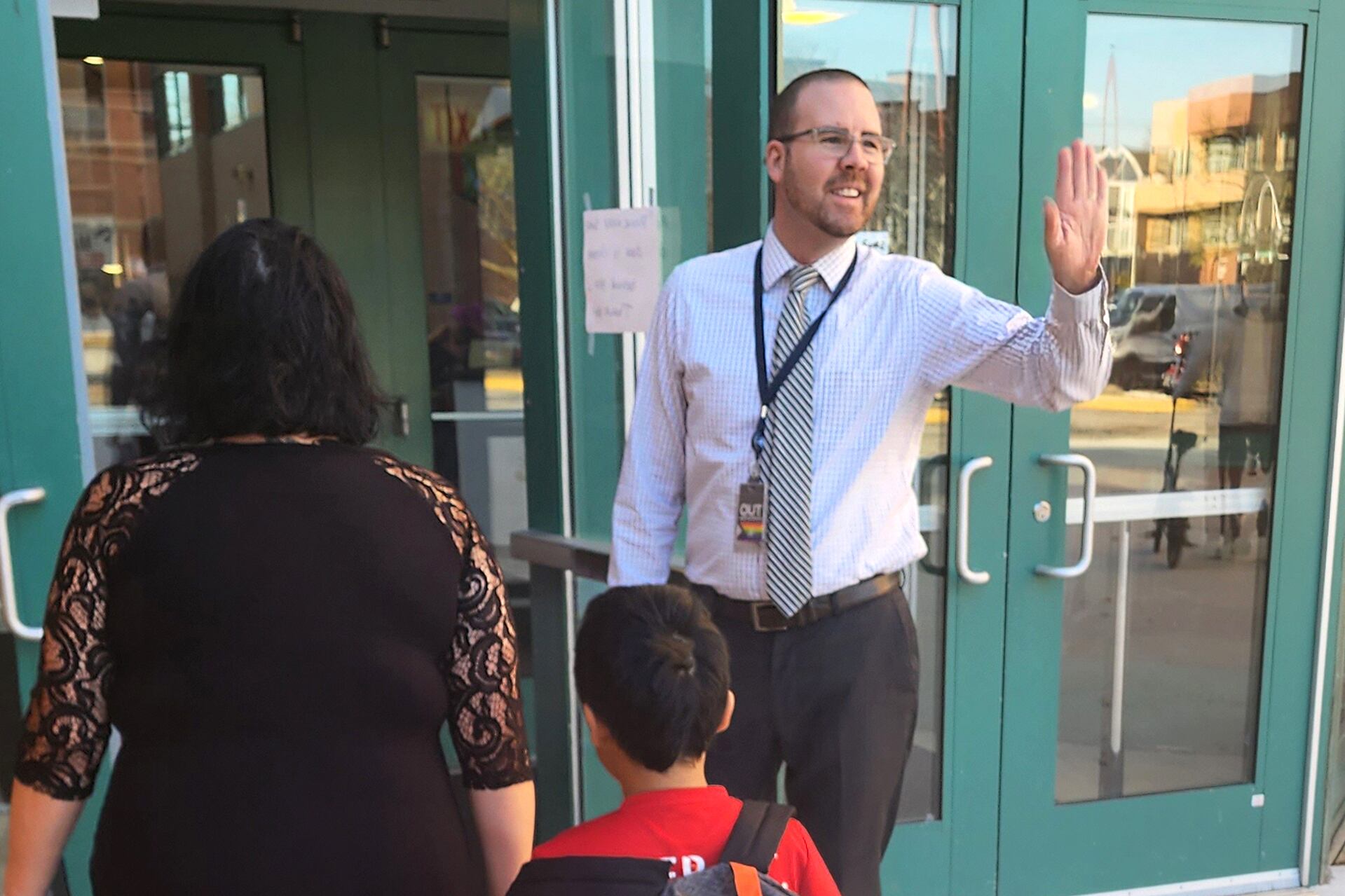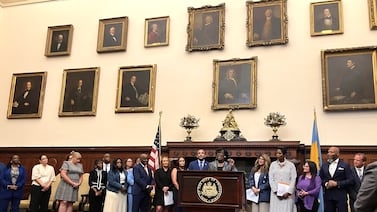Sign up for Chalkbeat Chicago’s free daily newsletter to keep up with the latest news on Chicago Public Schools.
Chicago Public Schools officials are back at the bargaining table — this time, with the district’s principals.
In February, CPS and the Chicago Principals & Administrators Association, the union representing school leaders, restarted contract talks after putting them on hold in the fall amid time-consuming and often contentious negotiations between the district and the Chicago Teachers Union. The district reached a tentative agreement with the CTU last week.
The principals union is advocating for more professional development, a process that allows unsuccessful candidates for principal jobs to grieve that result and get feedback, eligibility criteria, and more due process for principals facing discipline, among other things. A key priority is a proposal to enshrine more protections against harassment and abuse of school leaders in the new contract, said Kia Banks, the union’s chief of staff.
The two sides are building a principals collective bargaining agreement from scratch — and Banks said they agreed not to rush the process or duke it out in the media.
“This is our first contract, and I think the district is taking an approach that allows for us to have more discussion,” Banks said.
State lawmakers passed a bill that allowed Chicago Public Schools principals to unionize in 2023, and the CPAA, which had long-served as an advocacy organization for school leaders and administrative staff, stepped in to fill the role.
Principals enter ‘new era’ with union representation
The prospect of an inaugural collective bargaining agreement feels momentous, said Chris Graves, the principal of Jordan Elementary on the city’s Far North Side.
“It’s more than a small victory,” he said. “It’s a new era for us.”
The principals union is prohibited from going on strike under the new state law. But a revision to the initial law made earlier this year does allow CPAA to enlist an independent mediator to help with contract talks if they stall.
So far, the district and union are not sharing proposals publicly. In response to questions about the resumption of negotiations with principals, CPS said in a statement that it values the district’s school leaders and is scheduled to meet with their union again this week.
“The District looks forward to an engaging and collaborative conversation focused on the overall safety of our school leaders,” the statement said.
Banks said the union hasn’t yet presented an offer on salaries and benefits to the district. School leaders in CPS customarily have received the cost-of-living increases that the Chicago Teachers Union negotiates for educators in their contract, which stand at 4% to 5% a year in the tentative agreement that CTU members are voting on this week.
According to the district’s latest staffing data, principals in Chicago make a salary of $161,960 a year on average while assistant principals make $131,800. The district’s average teacher salary is about $96,000, according to CPS.
The union is prioritizing anti-harassment protections
Banks said negotiations restarted in February with a discussion of the union’s ask on anti-harassment protections. In a union survey, she said, a significant number of principals and assistant principals reported experiencing verbal abuse, threats, harassment, and occasionally physical incidents involving students, parents, staff, or community members.
Principals are the public face of district policies and decisions, Banks said — there to explain or defend them to members of the public who might disagree. That task became especially fraught during the pandemic in Chicago and across the country as COVID protocols and policies came under intense scrutiny. Principals also sometimes must deal with students and parents upset about student discipline decisions. Some have faced personal attacks and threats during virtual or in-person local school council meetings.
“There are so many access points that make principals vulnerable,” Banks said.
Banks said CPS officials have pointed to the district’s anti-bullying and harassment policy and student code of conduct as examples of protections already on the books. The union argues these policies don’t always go far enough or are not uniformly applied.
Graves, the Jordan Elementary principal, said a contract could spell out when district administrators must respond to harassment or threats against school leaders, along with a timeline for doing so promptly. While it’s hard to say how widespread this issue is, Graves said anecdotally, “I get a sense that for people who leave the role, that’s often one of the biggest reasons.”
The collective bargaining agreement can also make a big difference in spelling out where school leaders’ duties end — and where other district officials should step in to keep principals focused on serving their students, Graves added. This can be especially important for Chicago’s school leaders — who must answer to multiple people: network chiefs, district administrators, the school board, and their own local school councils.
For the past decade, the Chicago Public Education Fund has surveyed school principals about their experiences in an effort to help CPS improve retention among school leaders; roughly half of elementary principals and two-thirds of high schools principals in the district leave their role within five years, according to University of Chicago data. In the group’s most recent survey, principals said having more time devoted to improving teaching and learning in their buildings would improve their experience the most, followed by more financial resources for their schools.
Graves also said he would like to see a clear description of what the principal’s workday looks like and a process for handling district communications and issues after hours. CPS principals routinely work on evenings and weekends, and while they’re often best equipped to respond to emergencies, it can be draining to feel on call 24 hours a day.
“To have some guardrails and boundaries feels very empowering to us,” he said.
Towanna Butler, the assistant principal at the Chicago High School for Agricultural Sciences on the Far South Side, said the new union contract in the works would improve the principal experience across the district.
“It’s powerful that we’ll have a collective bargaining agreement that will ensure that we are all heard and treated fairly,” she said.
Mila Koumpilova is Chalkbeat Chicago’s senior reporter covering Chicago Public Schools. Contact Mila at mkoumpilova@chalkbeat.org.







